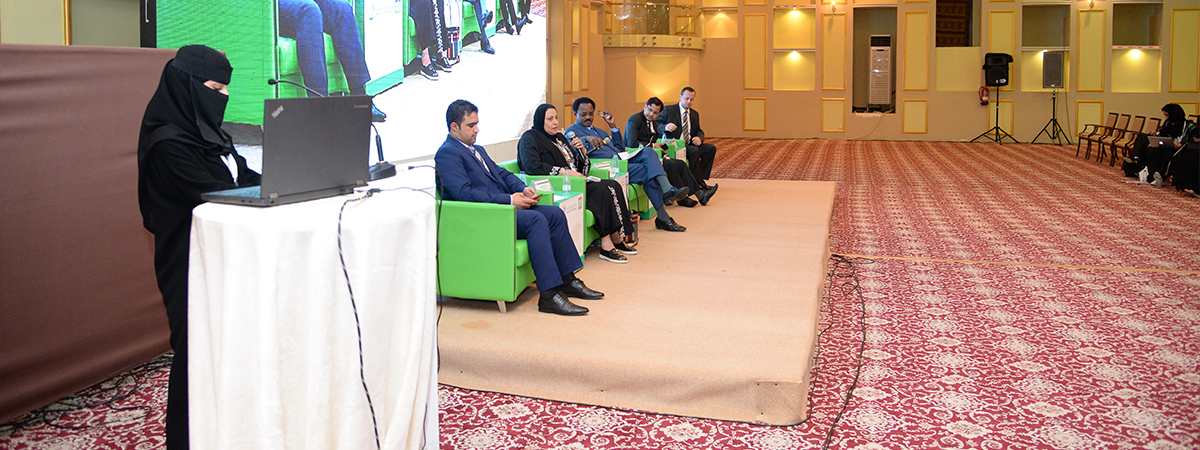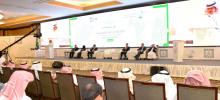Five Research Papers Presented at the 'Crisis and the Media Conference'

Five researchers presented research papers at the 'Crisis and the Media' conference. The purpose of the conference was to discuss the role of the media in creating, mitigating or exacerbating international crises.
Deputy editor of the Al Ashram newspaper, Dr. Samya Abu Al-Naser, presented a paper titled 'Media and Crisis'. Dr. Naser stressed the importance of awareness of emergency situations. In theor,y the media should present facts. However, many international media outlets seem to have a penchant for mismanagement, misunderstanding, misjudgment, bias and conflicts of interest in much of their reporting. Many outlets have lost credibility with the public. These international organizations should be striving to improve credibility, but many are doing a poor job.
Dr. Naser also pointed out that the public plays a role in media disinformation. Many people comment on social media, blogs and the like. A fair number of these individuals are 'trolls'. That is they comment using false or anonymous names. They deliberately try to support or undermine the author for their own selfish purposes. Many try to change or shape the narrative for their own reasons notwithstanding facts. These trolls are responsible for creating and spreading a large volume of fake news.
Dr. Salami Asaadani of the university Department of Media and Communication presented a joint paper with Dr. Laila Nasir Fakiri from the Department of Information titled 'Communication Strategies in Managing Economic Crises'. In their research, they addressed the main causes of socioeconomic crises, namely cultural misunderstanding and abuse of authority. The authors briefed the audience on strategies to prevent and mitigate crisis situations.
The researchers pointed out the inadequacy of the most prevalent crisis management strategies. Many leaders simply and falsely deny that there is a problem. This is usually a losing proposition as the truth ultimately gets revealed, thus undermining the speaker’s credibility. Another losing strategy is to falsely minimize the severity of the situation. Again, this destroys credibility as the truth comes out. The researchers concluded that careful analysis and truthful communications is almost always the best way forward. Lying or 'spinning' the facts just makes a bad situation worse
Dr. Asaadani presented a companion research paper titled 'The Science of Crisis Management'. His research explores the various approaches in crisis management including comparative, historical and analytical strategies. He compared and contrasted the roles of each approach in modern media.
Dr. Kashif Jamal from Jawaharlal Nehru University, New Delhi, India presented a paper on the underlying reasons for international security crises. He discussed the political, economic, societal, ideological and environmental causes for crisis level situations at the international level. Dr. Jamal also reviewed descriptive, analytical and historical methods of analyzing crises. He also discussed the critical role that media and security services play in crisis situations. Popular media has a great influence on public opinion, which in turn can greatly impact government action. Rumors, innuendo, misleading or incomplete information can lead to clouded judgment and poor decision making.
Dr. Anas Al-Qarawi from the university Department of Media and Communication presented the final paper titled 'Crisis Management Strategies: Towards Further Development of Preventive and Predictive Techniques'. He discussed the various major causes of international crises such as mismanagement, miscommunication, rumors, and mistrust. He also reviewed the stages of a crisis, and the importance of building a solid crisis management team that is trained and prepared to respond to an emergency quickly and effectively. This is an important element of responding to crises both large and small.






